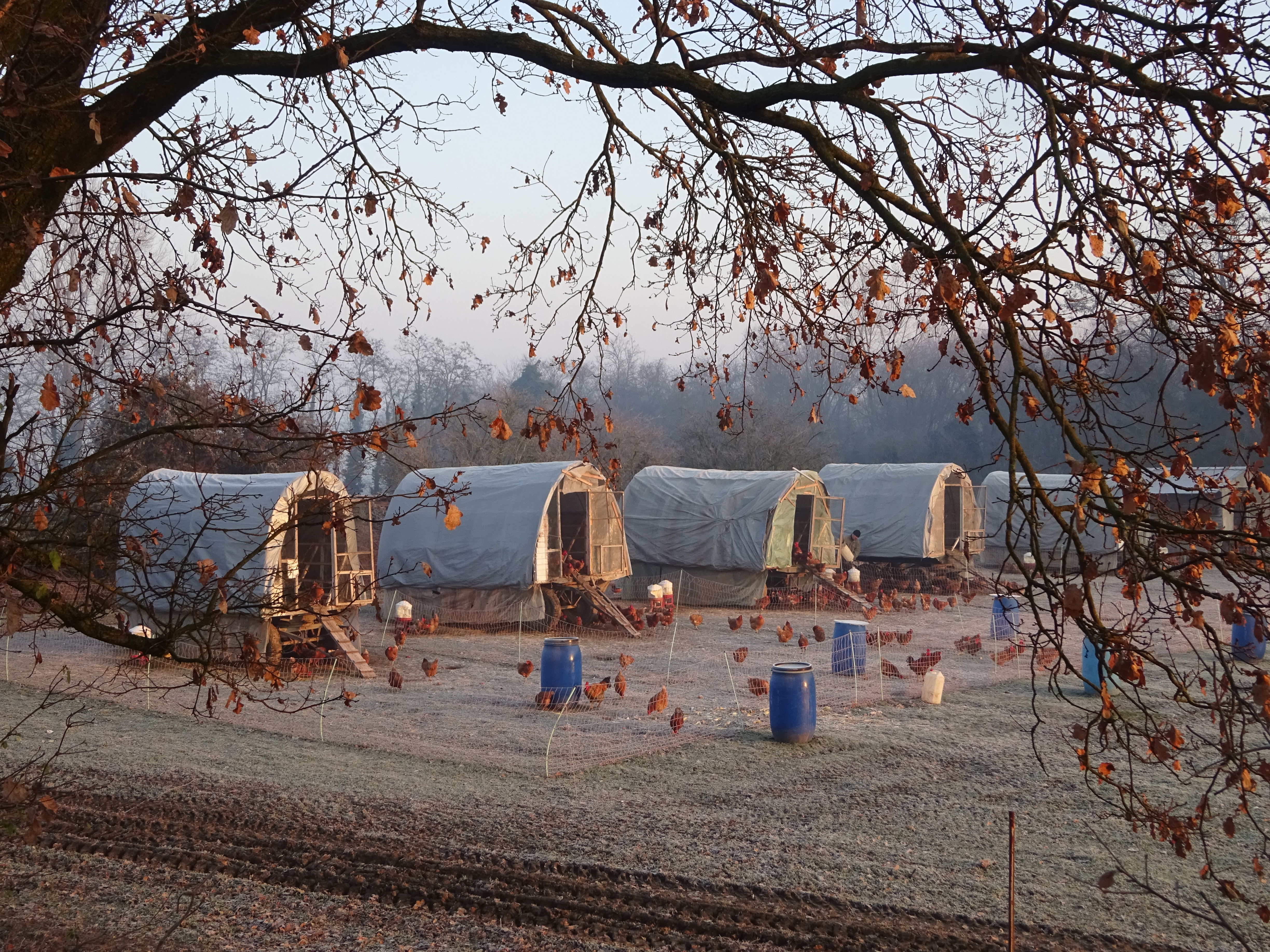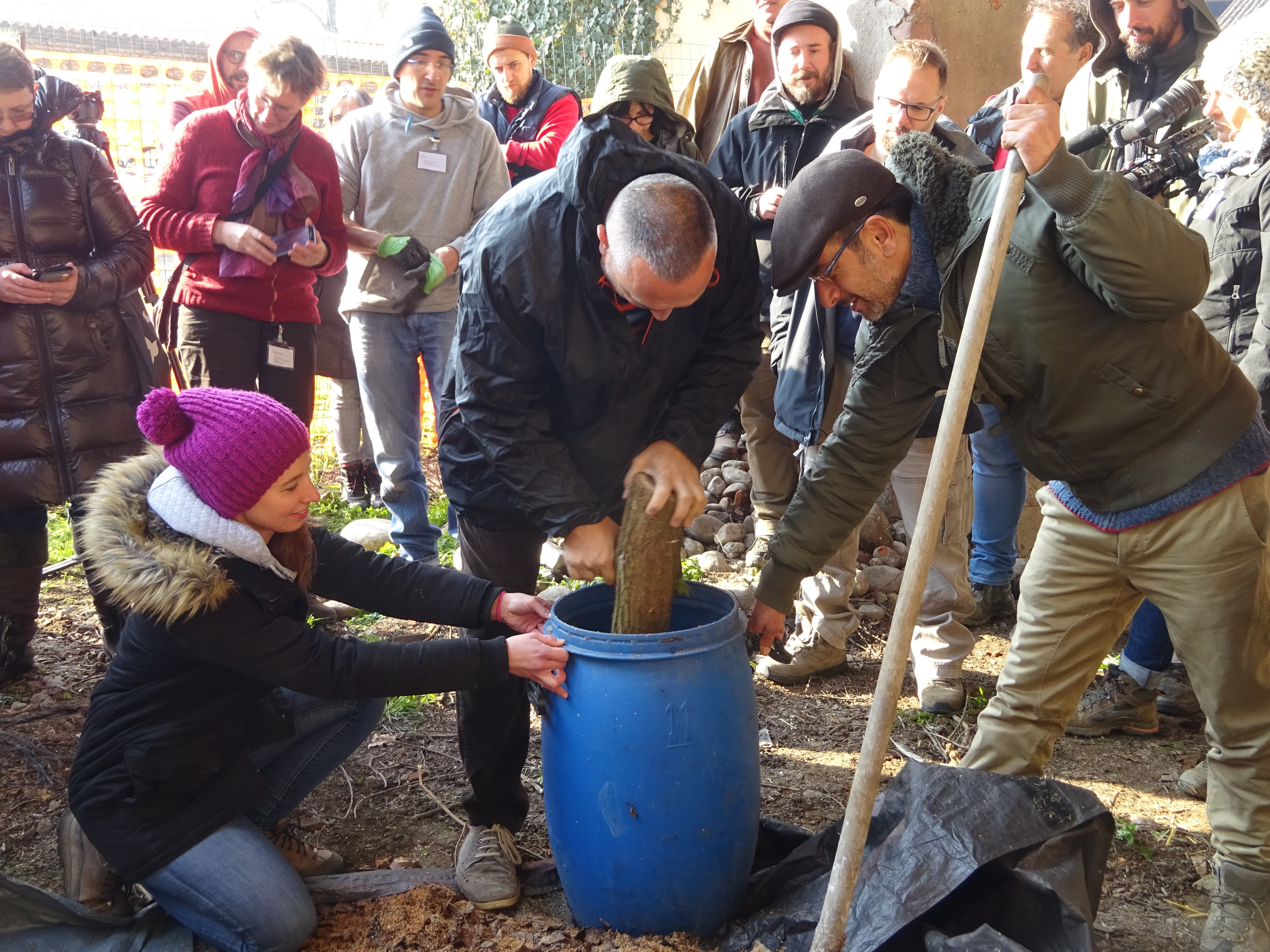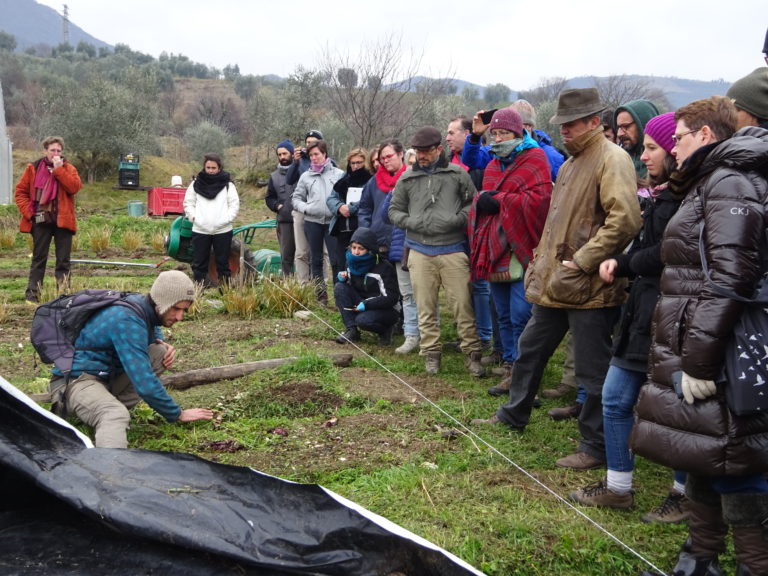by Rachel Harries.
Thirty farmers from nine different Europe countries gathered in northern Italy from 21-26 January 2018 for the first CSAct! training programme. The programme aims to improve existing training and resources for CSA farmers, equipping them with the skills and tools to produce healthy sustainable food for local communities, and to encourage experience sharing with European countries where CSA is less established.
The  took place over five days at Cascina Santa Brera, a thriving permaculture-inspired organic farm just outside Milan. Led by Urgenci with partners Deafal and Zambra-Baladre, and rich contributions from the farmers themselves, the programme included how to reach new members, methods of communication and conflict resolution, diversified marketing, logistics and collaborating with other CSAs. Discussions included how to balance income with expenses, with the key question of what fair share means for farmers as well as consumers and how CSA sits within the solidarity economy. Deafal’s trainers led hands-on practical sessions on improving soil fertility, regenerative agriculture and agro-biodiversity. participants had the opportunity to make aerobic bokashi and teku kana to increase soil microorganisms.
took place over five days at Cascina Santa Brera, a thriving permaculture-inspired organic farm just outside Milan. Led by Urgenci with partners Deafal and Zambra-Baladre, and rich contributions from the farmers themselves, the programme included how to reach new members, methods of communication and conflict resolution, diversified marketing, logistics and collaborating with other CSAs. Discussions included how to balance income with expenses, with the key question of what fair share means for farmers as well as consumers and how CSA sits within the solidarity economy. Deafal’s trainers led hands-on practical sessions on improving soil fertility, regenerative agriculture and agro-biodiversity. participants had the opportunity to make aerobic bokashi and teku kana to increase soil microorganisms.
During one of two inspiring farm walks, participants heard from Cascina Santa Brera owner, Irene di Carpegna how she has developed a range on organic enterprises on the 34 hectares farm. Inheriting the farm, that sits on the periphery of Milan and borders Europe’s most polluted river, the Lambro, she has planted more than 30,000 trees including a 6 hectare buffer alongside the river. Irene was one of the early adopters of permaculture in Italy and has used it’s principles to create a multi-dimensional farm that produces fruits, vegetables, soft wheat for bread-making, Varzese breed cattle (Slow Food Presidium), laying hens, pigs, chickens. The agricultural enterprises are supported by agri-tourism with a restaurant, B&B, farm shop and training education programmes for adults and children.
 Another farm visit to Azienda Agricola Izide enabled participants to further see regenerative and practices in action on a multi-production farm established by Matteo Mazzola and Paola Archetti.
Another farm visit to Azienda Agricola Izide enabled participants to further see regenerative and practices in action on a multi-production farm established by Matteo Mazzola and Paola Archetti.
A key part of the programme was the farmer to farmer approach and the presentations that the participants gave each day of their farms and projects. This enabled less experienced CSA farmers to see success stories in action, and be able to have in depth conversations and ask questions about these enterprises. Key examples included how apple producer Gregoire Delabre works with the multi-CSA AMAP network in France, the clear marketing and pricing of Agnes Jansen’s Bioferma Albastrea in Romania and Michal Tichey’s of KomPot CSA in the Czech Republic, sharing of the group’s use of innovative community building tools.
The value of this peer to peer support illustrated the need for a more formalised mentoring programme for CSA farmers, which Urgenci are exploring.
The training also enabled Urgenci and partners to identify gaps in the knowledge and experience of CSA farmers, with specific topics such as financial planning being identified as requiring more support. The CSAct! project team will use this information to develop and produce a training booklet for CSA farmers and training activities due to take place later in the year. A farmer to farmer working group including participants from this event will help to guide this work.
The CSAct! project includes partner organisations from France, Greece, Hungary, Italy, Poland and Spain and is supported by the Erasmus+ programme of the European Union.


